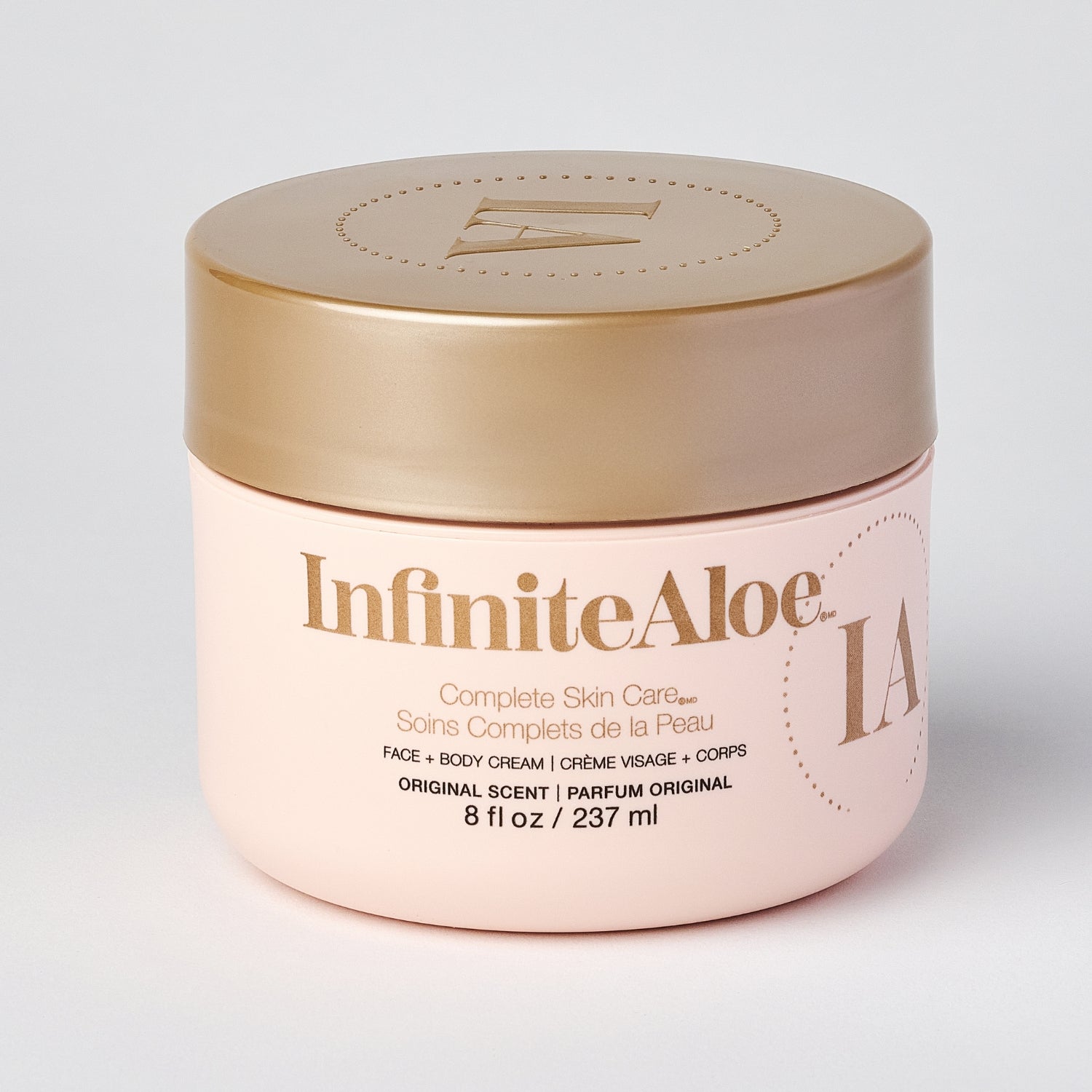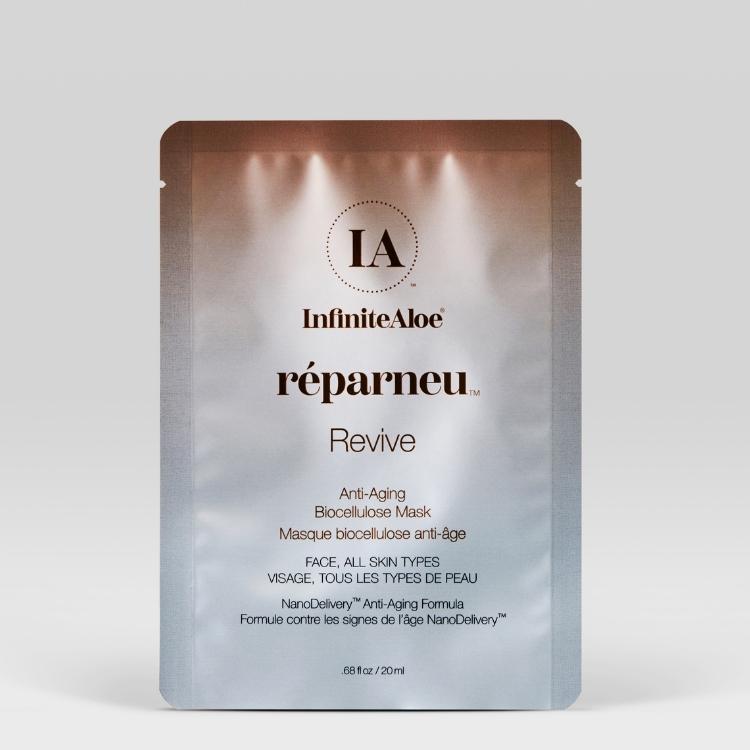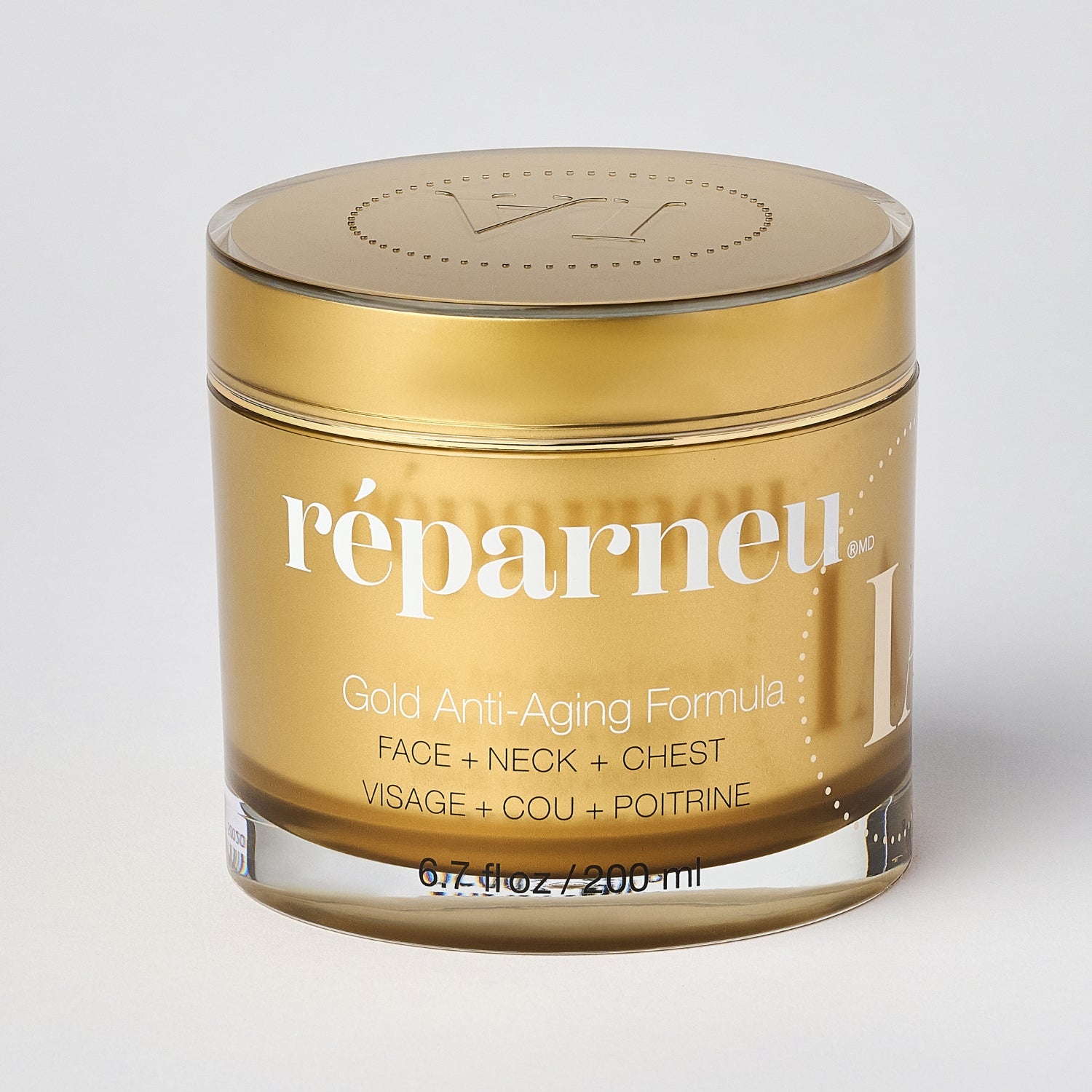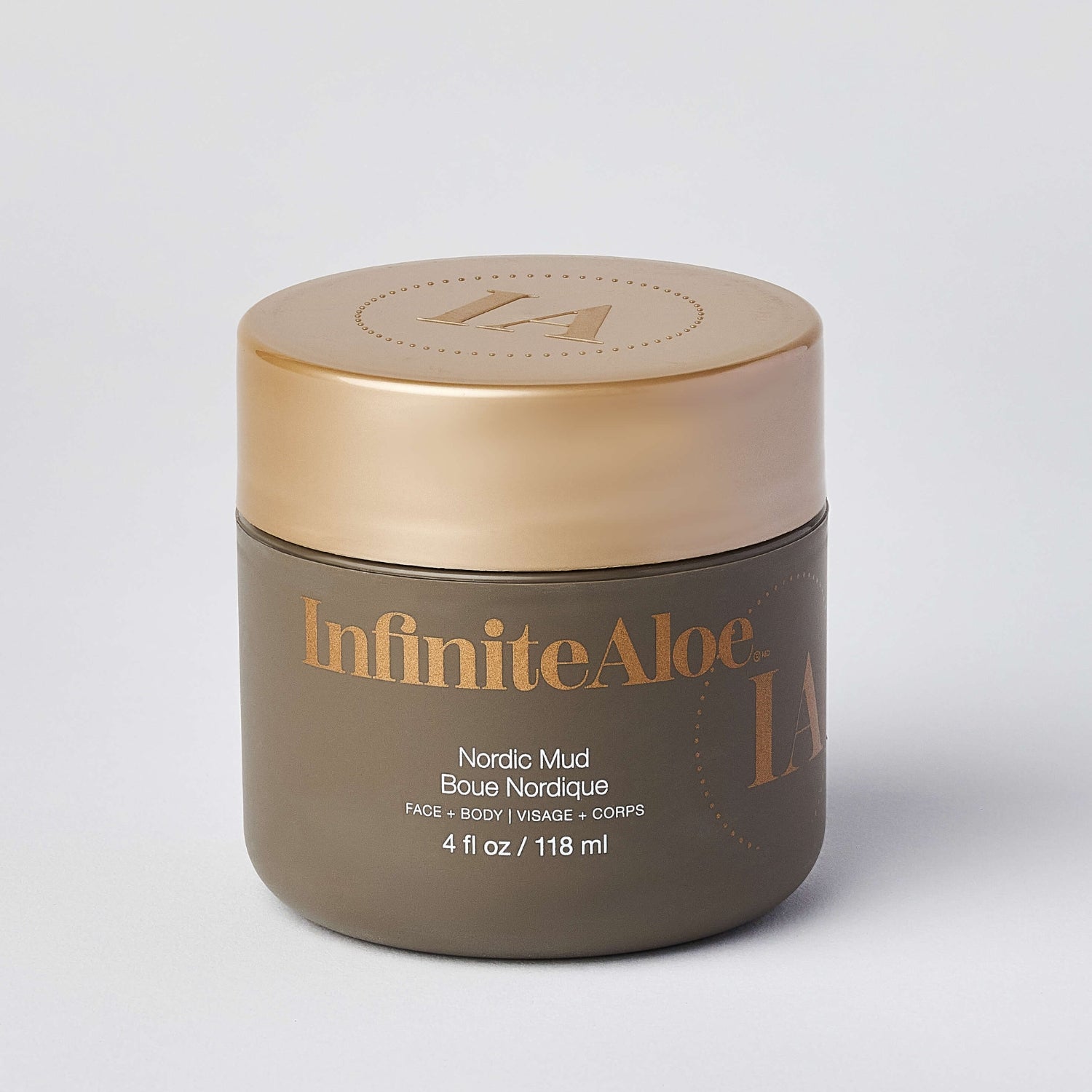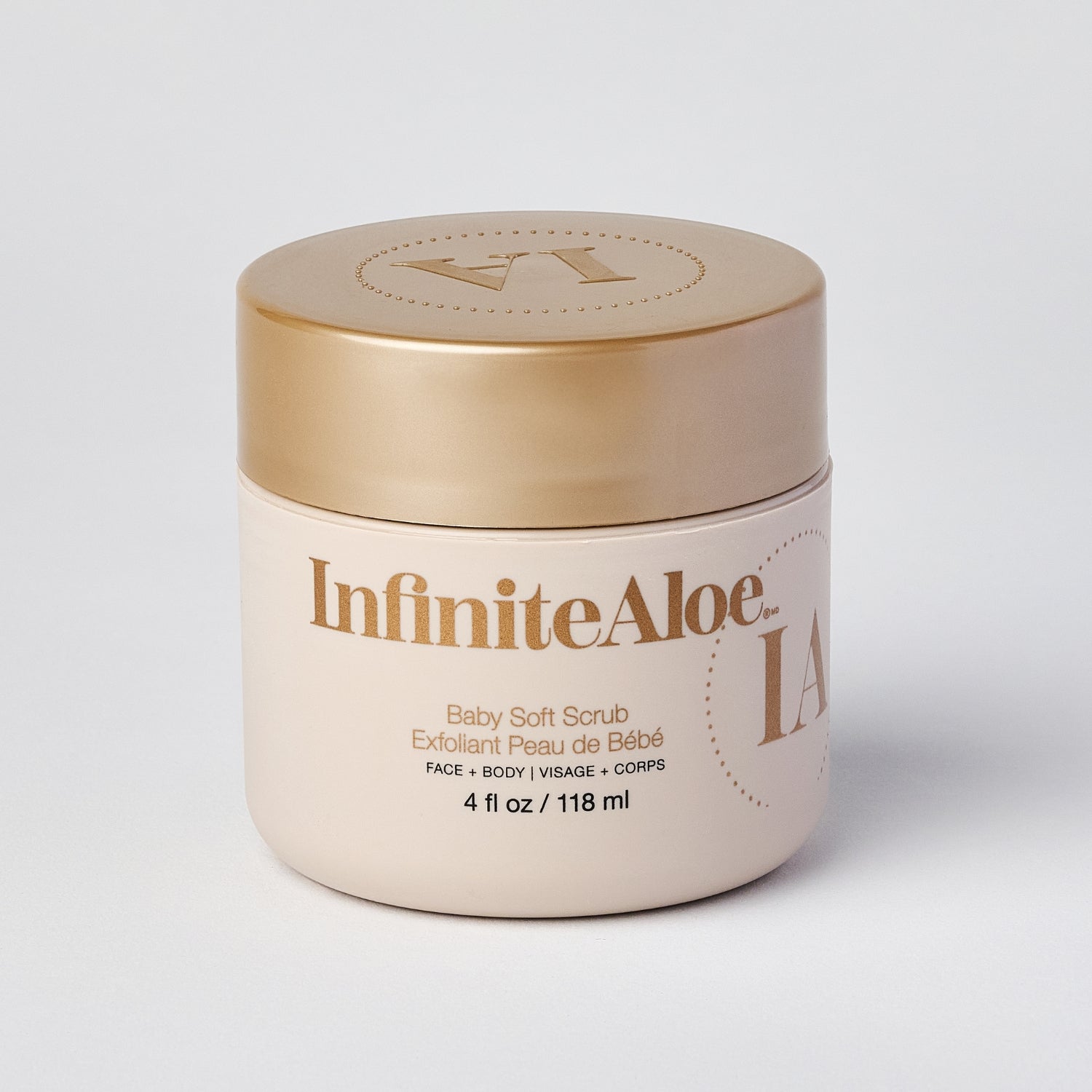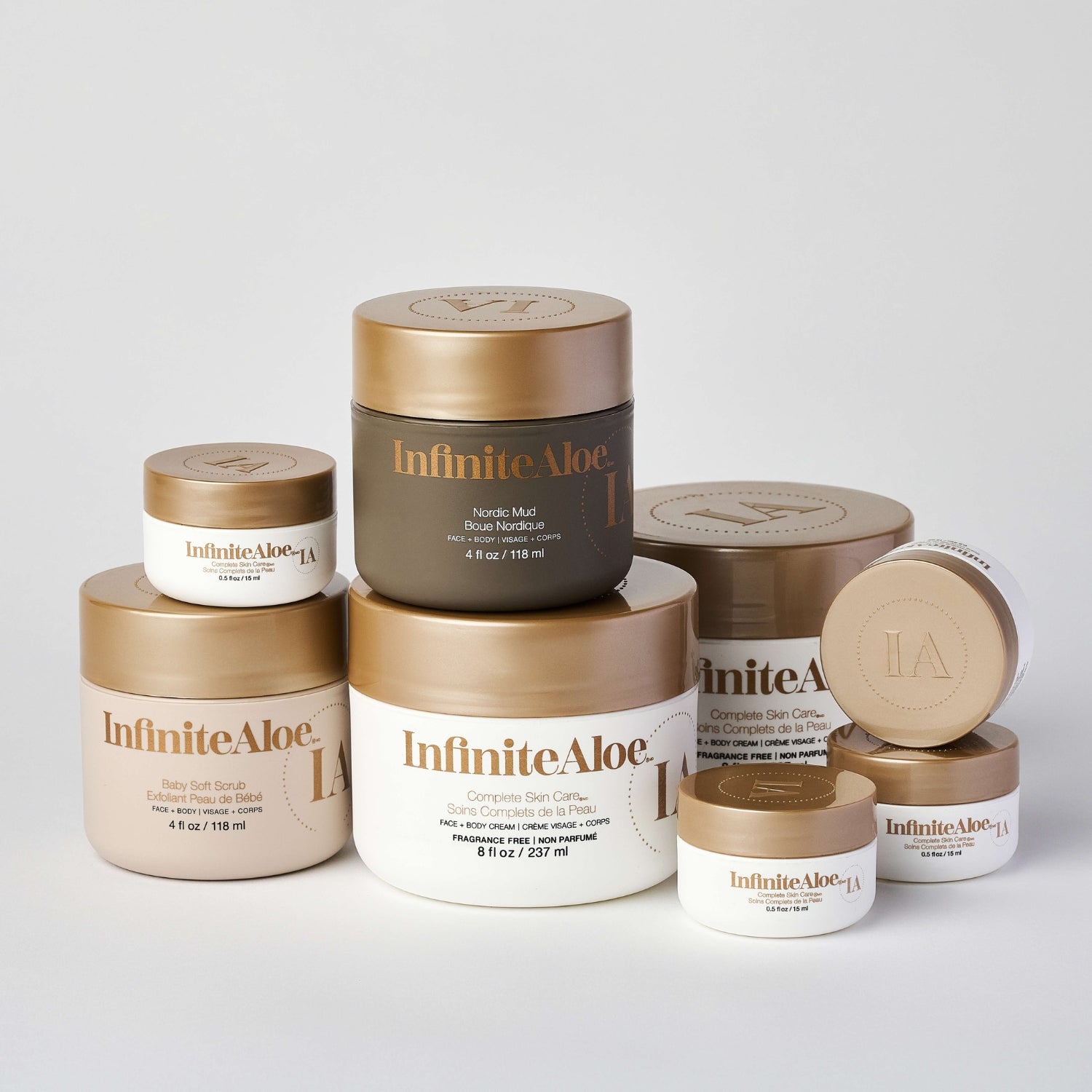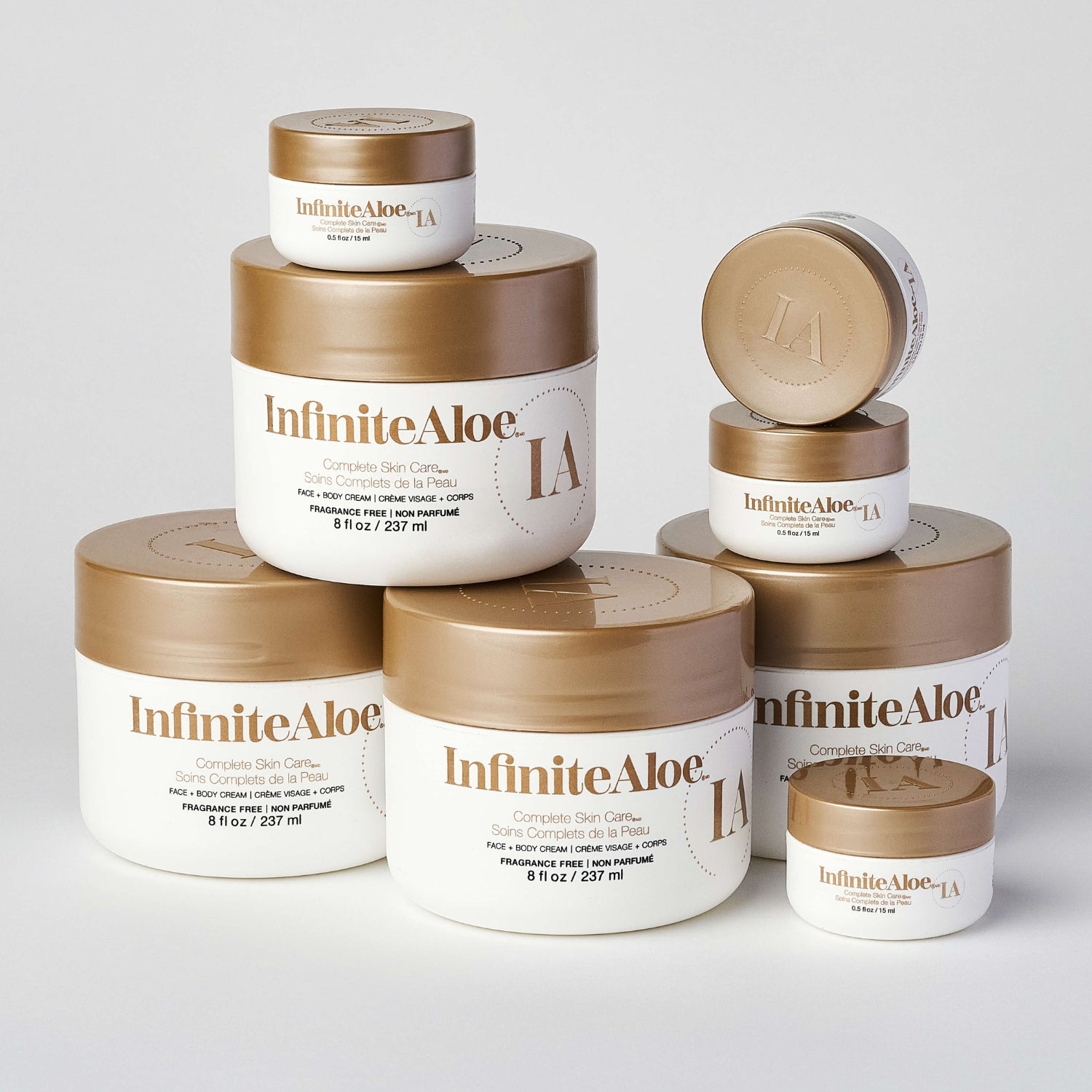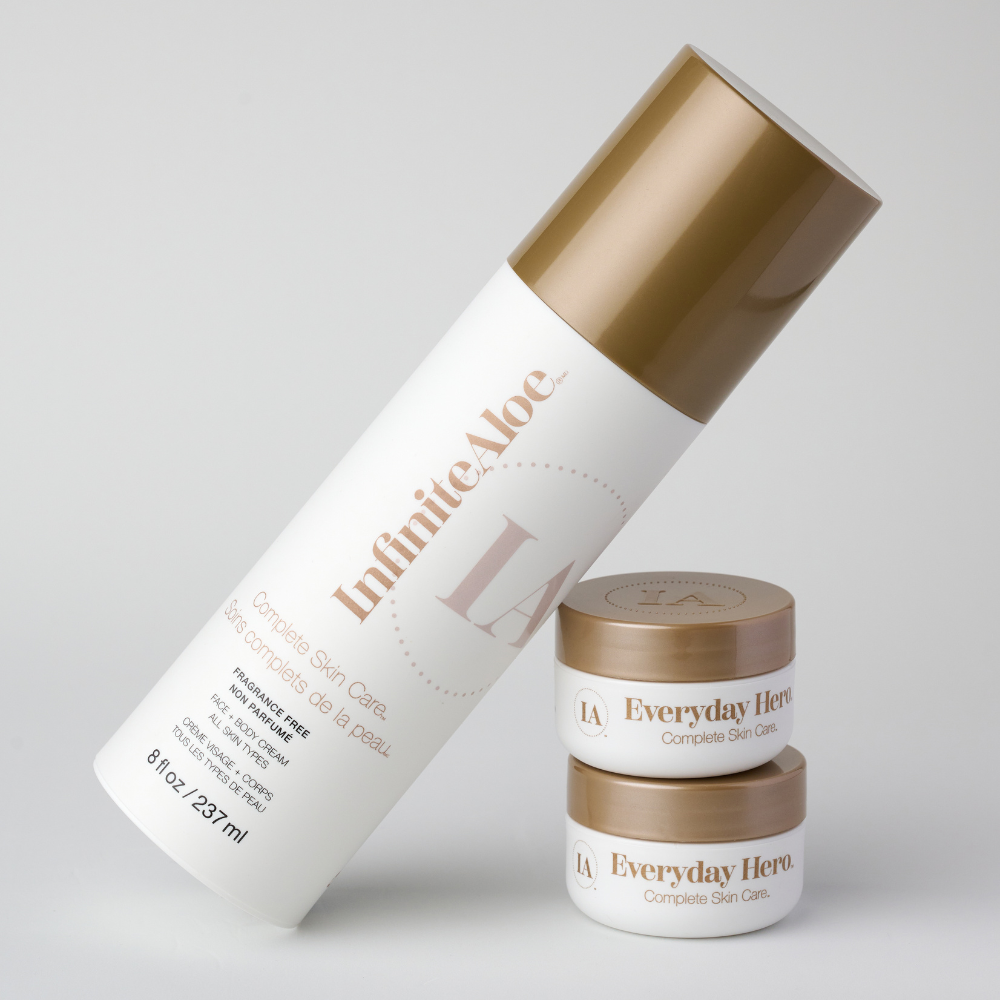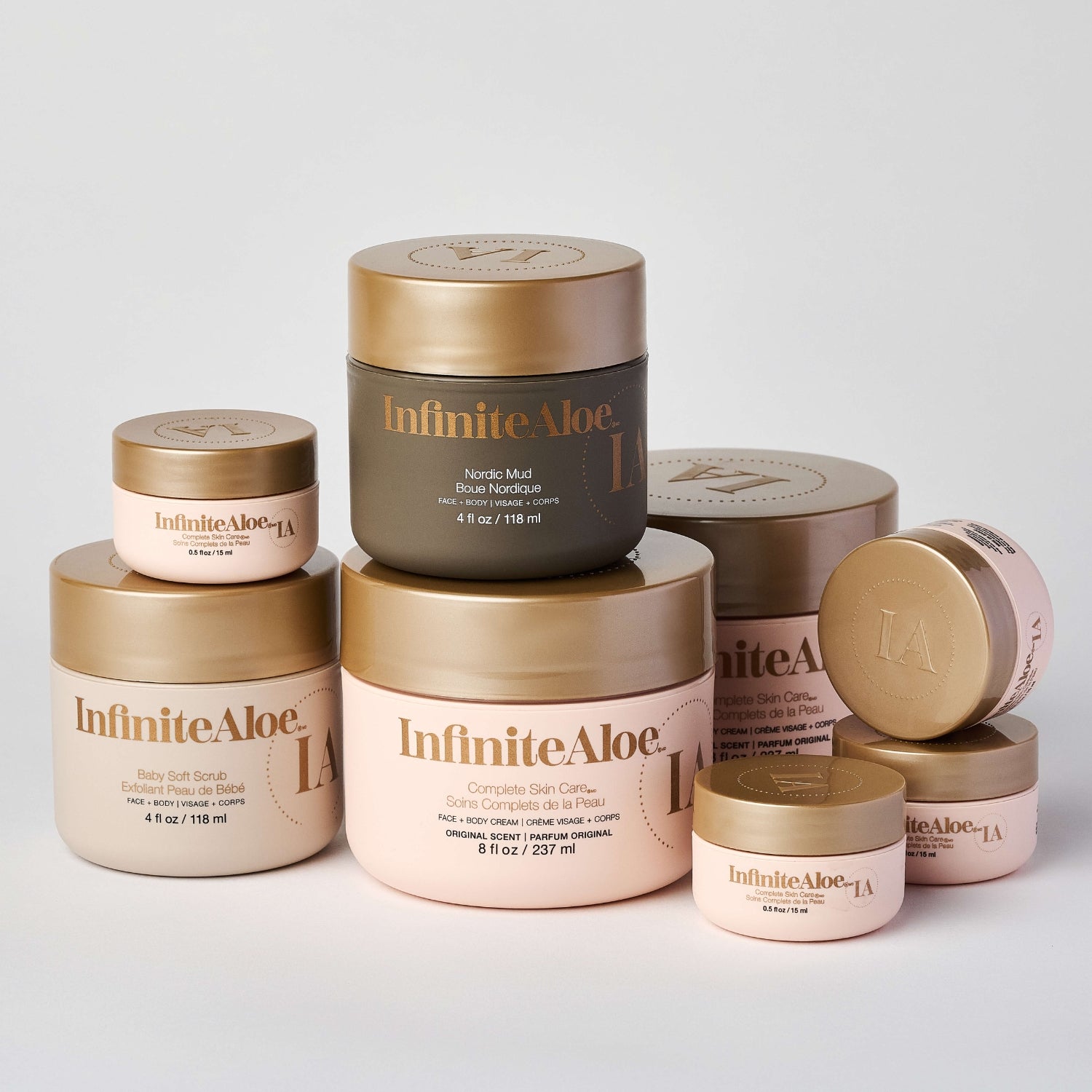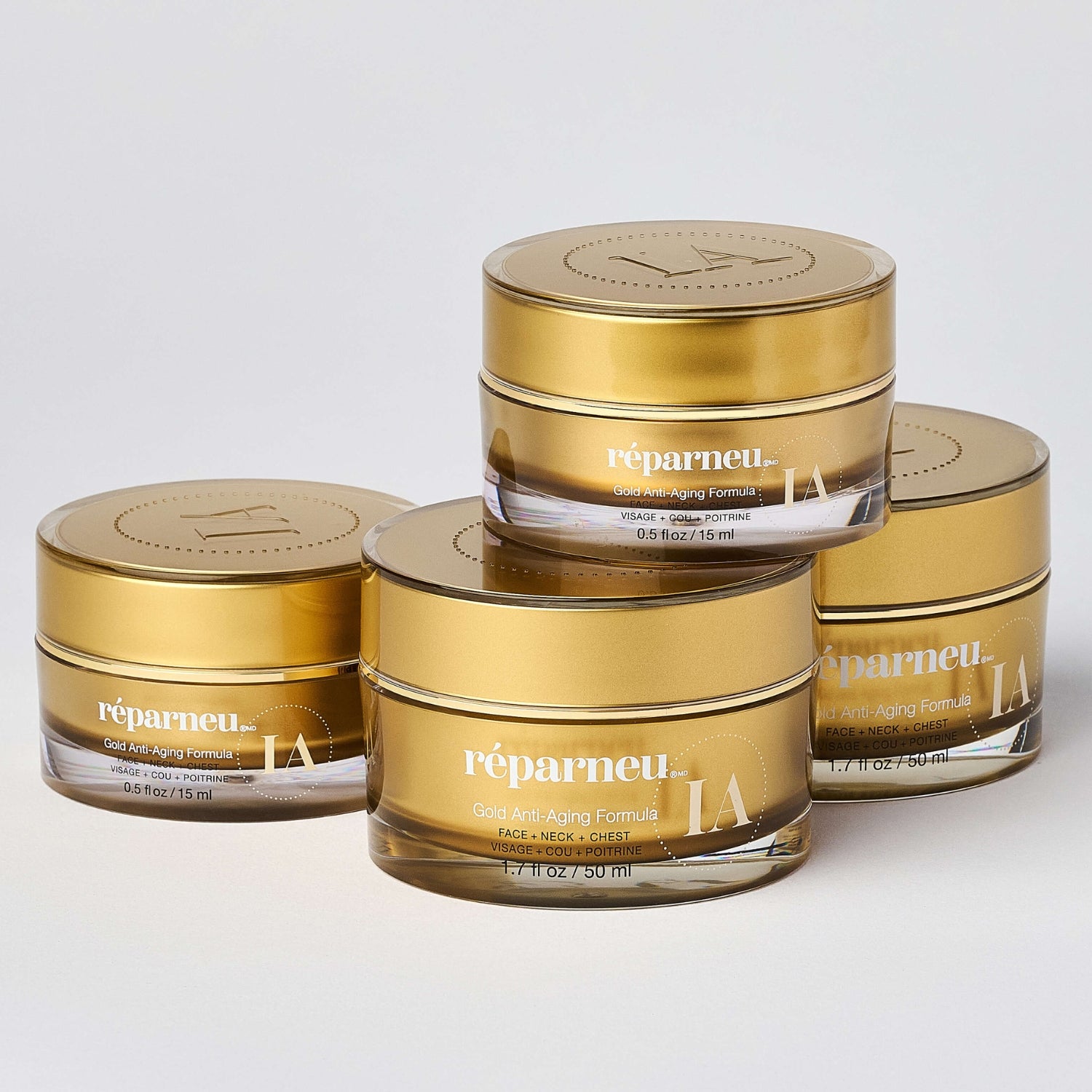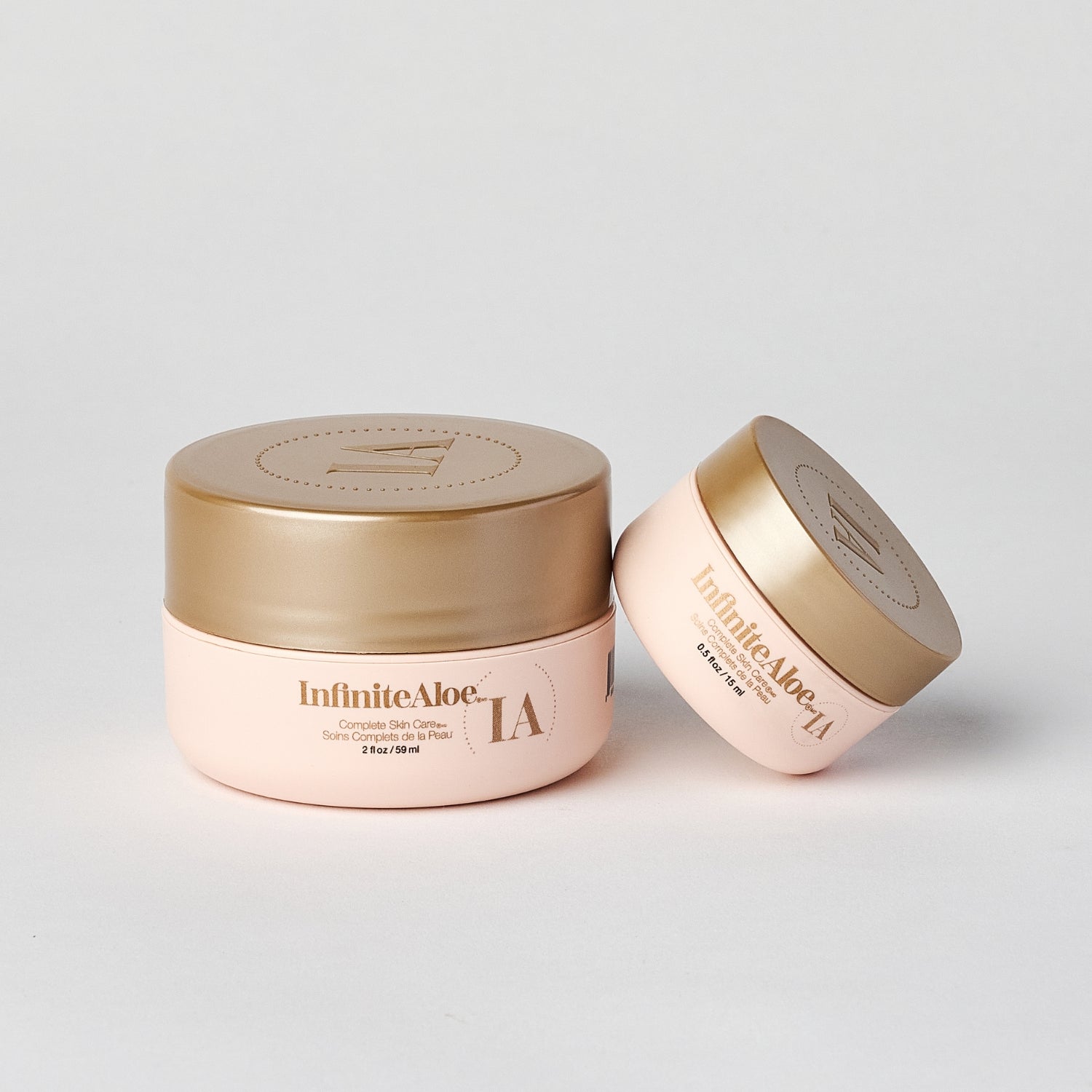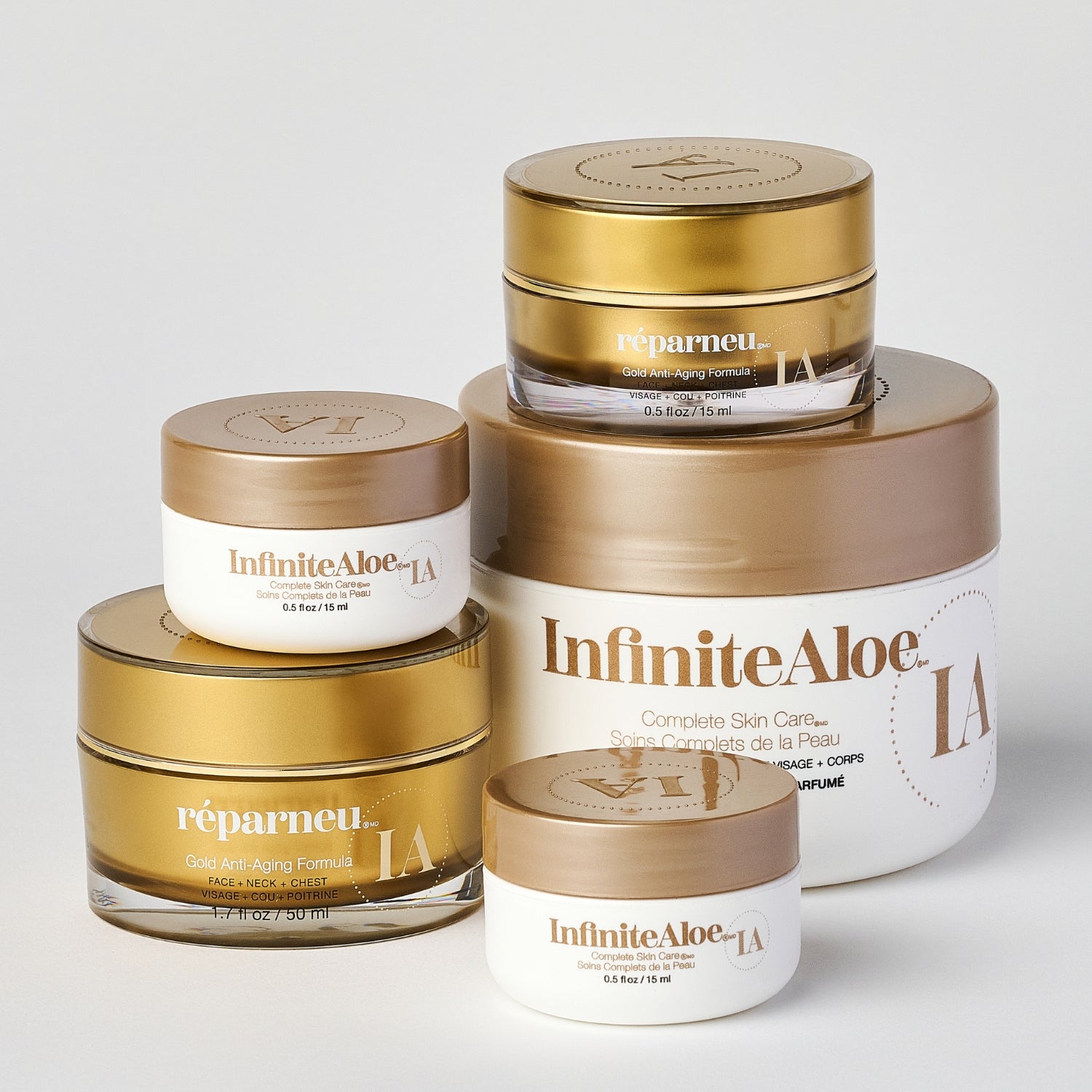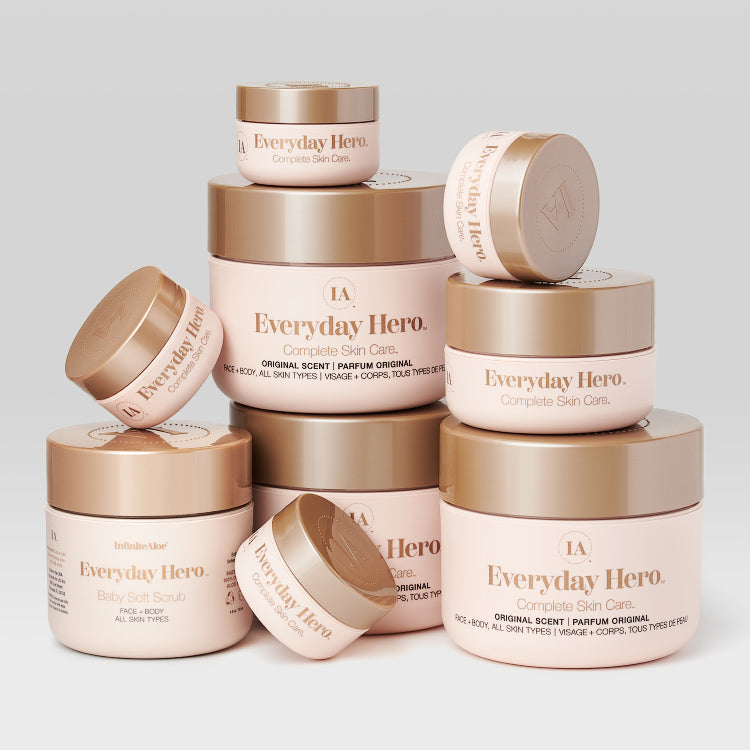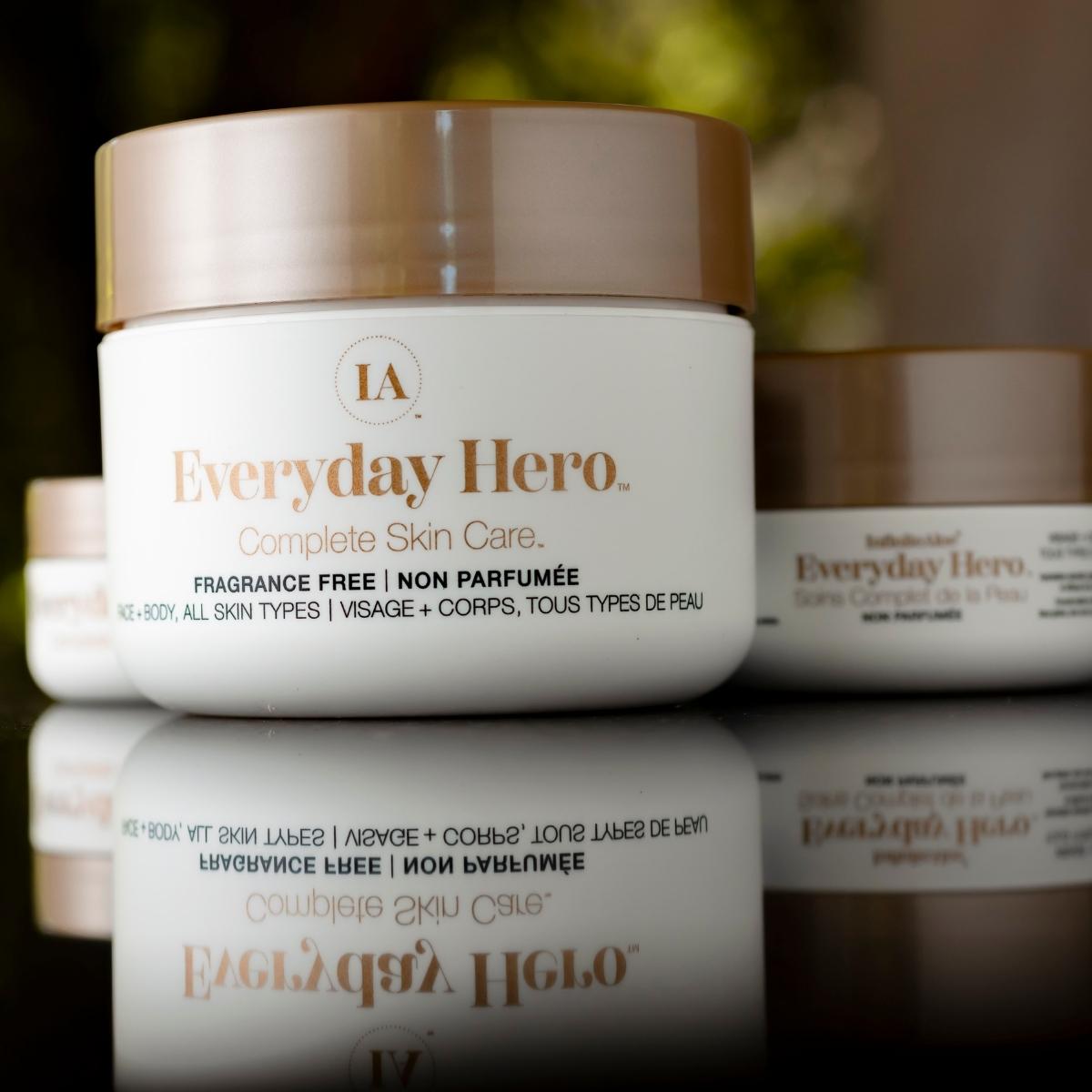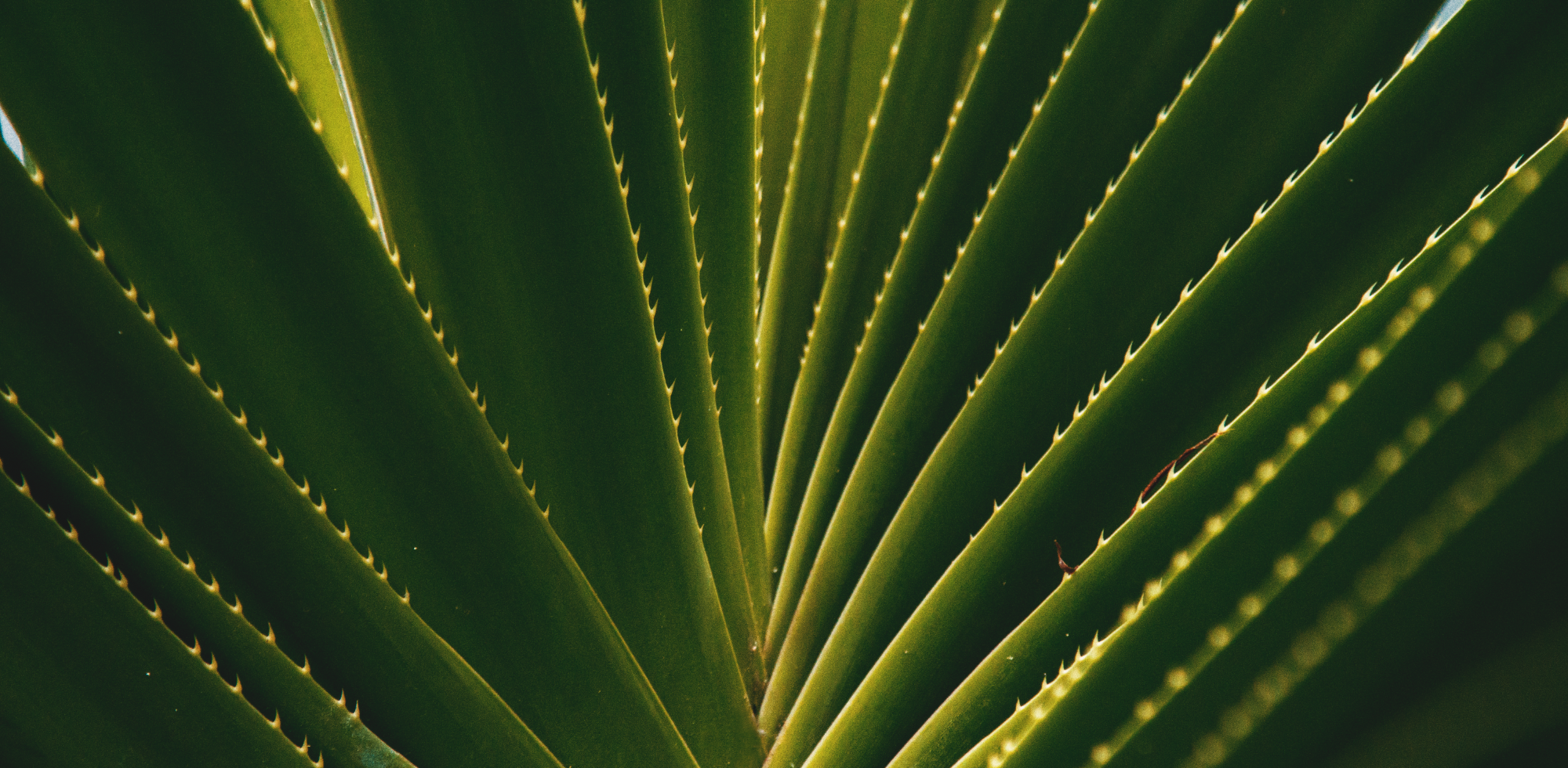Summer is here, and while most of us look forward to sunshine and outdoor activities, those with eczema often dread this season. Eczema is a condition where patches of skin become inflamed, itchy, red, and cracked. While many people believe that eczema only worsens in cold weather, summer activities can also lead to nasty flare-ups. But don't worry, we've got you covered with our top tips on caring for eczema in summer.
- Manage Perspiration
Sweating brings out all sorts of irritants, which can cause prickly heat, itching, and worsened eczema symptoms. Sports and exercise are super healthy, but polyester uniforms may trap perspiration against your skin for too long. Try to wear natural fibers or sports fabrics that wick moisture away and use packaged wipes that are natural and gentle between showers. Shower as soon as possible and use a gentle moisturizer like InfiniteAloe Skin Care within three minutes of bathing to soothe and protect against the dry skin and itchiness of eczema.
For children: Be sure to wipe them down thoroughly, including inside the folds of their skin, such as inner elbows and backs of the knees, and pat them dry. Apply InfiniteAloe right away after drying them off.
- Beware of Chlorine in the Pool
Chlorine absorbs into the skin rapidly, making it a strong irritant for those with eczema. Dermatologists recommend bathing or showering right before jumping into the pool so that your skin will already be “full” and will absorb less chlorine. Don't let the chlorine stay on the skin longer than necessary, so shower promptly, pat dry thoroughly, and moisturize with a good, natural, soothing skin cream.
InfiniteAloe is an excellent choice as it contains organically-grown Aloe Vera, which is the most potent available and is used in burn centers across America. It also has over 30 amazing ingredients that enhance your skin care routine with deep hydration and therapeutic botanical extracts to relieve the irritation and itching of eczema.
- Minimize Exposure to Seasonal Allergies and Airborne Toxins
Eczema can be very sensitive to changes in the weather. The itchy, red condition can be triggered by the high temperature of summer, whether you stay home or travel. When the temperature rises, pollen and ragweed counts also increase, which has been linked to eczema. In this case, you might consider a three-pronged approach. Stay indoors (and keep your baby indoors) as much as possible when the pollen counts are high. But make sure the air quality in your home is good! The U.S. Environmental Protection Agency estimates that air quality indoors is frequently 10 times worse than that outdoors. Many doctors recommend a good air purifying system. Another solution clears up toxins—but not necessarily pollen—and doesn't require that you clean old filters. A study by NASA suggests that houseplants are excellent natural air purifiers that add oxygen, too. Some of the pretty and easy-to-grow houseplants they recommend are Heart Leaf Philodendron, the Peace Lily, Aloe Vera, English Ivy, the Date Palm Tree, and the ever-popular Boston Fern. Some of these plants are poisonous if ingested, so keep them out of reach of children and pets.
- Control Bacteria
Higher temperatures create the perfect environment for bacterial colonization of the skin. Keep your skin as clean and dry as possible in summer with a gentle cleanser (some recommend that those with sensitive skin avoid sodium laureth sulfate), warm—never hot—water, and gently patting your skin dry. InfiniteAloe Complete Skin Care contains organic Aloe Vera, which has anti-bacterial, anti-fungal properties.

